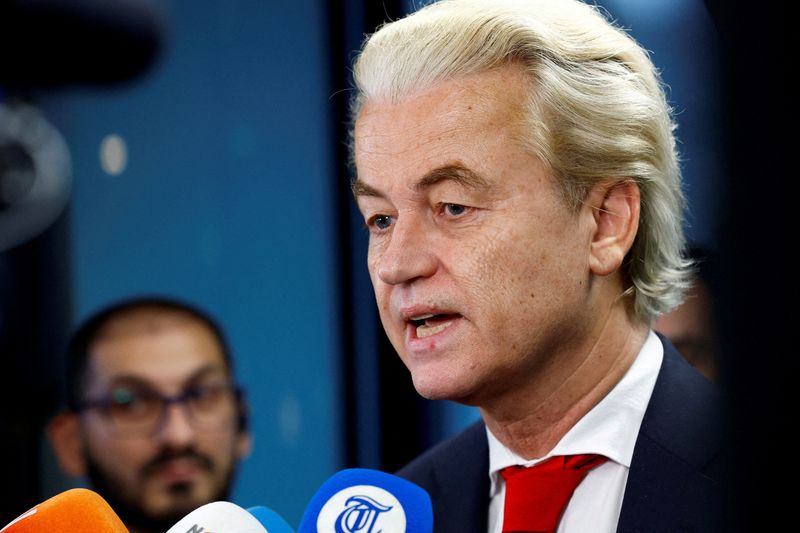By Bart H. Meijer
AMSTERDAM (Reuters) - Dutch political party NSC said on Monday it would not join a new coalition government with the nationalist Freedom Party (PVV) led by anti-Muslim politician Geert Wilders, citing irreconcilable differences.
The move by NSC, a centrist upstart that took 20 seats in the Nov. 22 election won by Wilders, effectively blocks the formation of a rightwing government that would have a majority in parliament.
Coalition talks were already thrown in disarray last week, when the NSC unexpectedly stepped away, leaving the three other prospective coalition partners to puzzle over their next moves.
A report by the intermediary leading the talks, former Labour minister Ronald Plasterk, on Monday made it clear NSC had no intention of joining any government coalition with the PVV as it said differences on the rule of law were too big to overcome.
Wilders won a quarter of the vote in the election, and needs other parties to form a workable coalition.
He has been negotiating with the NSC, the centre-right VVD of outgoing Prime Minister Mark Rutte and the farmers' protest party BBB since late November, without giving any sign that a deal was close.
Talks were complicated from the start, as both NSC and VVD had expressed serious doubts about working with Wilders, whose program had called for shutting down mosques and banning the Koran in the Netherlands.
Wilders repeatedly said he would shelve plans that were seen to violate the Dutch constitution, and Plasterk's report showed he had vowed to his prospective partners to respect the rule of law.
But this did not go far enough for the NSC.
"Considering past remarks and the PVV's election program, the distance remains too large to join a majority or minority government," it said.

The PVV, VVD and BBB may now try to form a minority government, which NSC-leader Pieter Omtzigt said he would consider giving outside support.
The Lower House of parliament will discuss the next steps in the government formation on Wednesday.